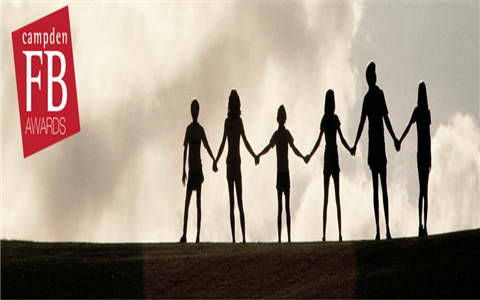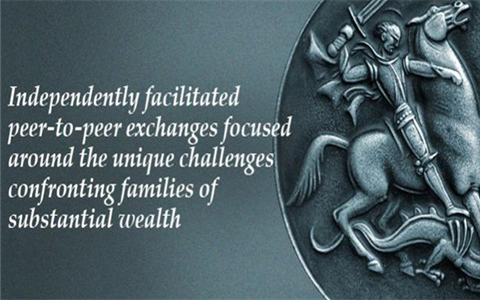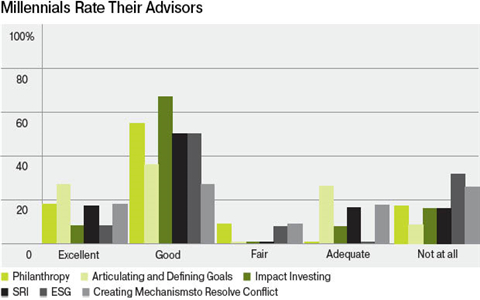
发布时间:2019-07-22
《传承宝典》17
家族办公室的兴起: 2019年后将何去何从?

过去10年,全球的家族办公室数量显著增加,预计这一趋势将会继续下去。根据安永会计师事务所(EY)的估计,目前已有1万家单一(户)型家族办公室,自2008年以来增长了10倍。更令人印象深刻的是这些机构所管理的巨额财富。坎普登财富(Campden Wealth)的首席执行官多米尼克•萨缪尔森(Dominic Samuelson)进行的研究显示:这些家族办公室目前持有的资产总额已超过了4万亿美元的规模。这些家族办公室现已能够进行传统上只留给大公司或私募股权公司来操作的交易,因此正在成为市场上的一股颠覆性的力量。这一趋势越来越受到大型投资银行的关注,它们已开始任命资深银行家来管理旗下的家族办公室机构。《华尔街日报》(the Wall Street Journal)报道称,对冲基金行业甚至出现了战略转变,自2011年以来,“已有36家对冲基金转变为家族办公室。”在同一篇文章中,沃德•麦克纳利(WardMcNally)相当巧妙地总结了家族办公室之现象,他说:家族办公室“是你能找到的最安静的地方”,但“他们开出的都是巨额支票”。很明显,家族办公室已经成为一股不可忽视的力量。

即使在今天,“家族办公室”一词仍然可以在许多不同的语境中使用,并具有各种不同的含义。家族办公室最初只是为了照顾超高净值家庭的财富而设立的。但现代的家族办公室所做的远不止这些。甲骨文资本集团(Oracle Capital Group)董事长马丁•格雷厄姆(Martin Graham)解释了家族办公室是如何演变为一站式服务的。我们的服务范围很广,从帮助移民、找房子住、送孩子上学、建立慈善基金会,到专项性的融资。然后,至关重要的是,我们梳理了很多财富结构:通过家族信托和基金会之类的东西,在各代际内和代际之间保存下财富。除此之外,我们还做资产管理。当前出现了两种主要的家族办公室变体:单一家族办公室和多家族办公室。前者是传统的家族办公室,作为一家咨询性的财富管理公司,支持一个超高净值家族。后者则服务于多个家庭,并且这种一体例正变得越来越流行。甚至连洛克菲勒家族最初的办公室,现在也有着250多个客户。


家族办公室是如何产生的?
大多数人都认为,家族办公室起源于欧洲,不久之后,摩根家族(House of Morgan)和洛克菲勒家族(Rockefellers)就在美国发展并正式确立了这一概念。财富管理是最重要的驱动因素,因此,随着亿万富翁人数的增加,以及花在赚取巨额财富上的时间减少,家族办公室在过去数年中的激增也就不足为奇了。其他推动因素包括全球范围的波动性、新型投资的选择以及对多代人财富保值的关注,这些都需要专家级的建议。 Stonehage-Fleming家族办公室的合伙人迈克尔•马斯林基(Michael Maslinski)表示:“我们看到,直接投资对于咨询和专业技能的需求日益增长。”“此外,监管越来越复杂,社会上的诉讼也越来越多,全球经济更存在不稳定的风险。”在谈到长期性的财富保值时,马斯林基表示:“对大多数家庭来说,他们面临的最大风险是管理继承和代际转移。交接时的实用性经常会影响决策过程和决策本身,特别是涉及到高度专业性资产的时候。”


未来会怎样?
2019年之后,单一家族办公室和多家族办公室都将继续扩大其业务范围,不再局限于财富管理、法务和家族治理。其他将受到广泛关注的主要领域包括:致力于提供实时的合并财务报告,开发一些“软因素”——比如定义一个明确的任务和目标,以及消除复杂的网络安全领域之类的新型风险。

家族办公室的崛起将继续下去,预计该行业还将会发生大量的变化。马斯林斯基表示:“我们将看到家族办公室朝着更加专业化的方向迈进。”今天,家族办公室必须准备好就范围越来越广的问题提供咨询意见,因此,需要确保它们有适当的资源来满足这一新的需求。家族办公室的目标和作用需要比过去更加明确。格雷厄姆补充道:“我相信,很多人不会长期从事这个行业,因为他们不遵循以客户为主导的方式。成功的关键是与客户建立深厚的、相融的关系,并去理解客户,还能够以切合客户特定需求的方式,提供日益成熟的服务。”


There has been a significant increase in the number of family offices globally over the last ten years and this trend is expected to continue. EY estimates that there are currently 10,000 single-family offices, a ten-fold increase since 2008. Even more impressive is the sheer amount of wealth being managed by these firms. Research conducted by Dominic Samuelson, CEO of Campden Wealth, suggests family offices currently hold assets in excess of $4 trillion.
Family offices are now capable of making transactions that were traditionally reserved for big companies or private-equity firms and therefore are becoming a disruptive force in the market-place. This trend has received growing attention from large investment banks, who have moved to appoint senior bankers to manage family offices. There have even been strategic shifts within the hedge fund industry, The Wall Street Journal reports that since 2011, “three dozen hedge funds have converted into family offices." In the same article, Ward McNally sums up the family office phenomenon quite neatly by saying that they are “as quiet as you possibly could find”, but “they’re writing extremely large checks.” It is clear that family offices have become a force to be reckoned with.
What Exactly Is A Family Office?
Even today the term "family office" is still one that can be used in many different contexts and carries a variety of different meanings. The family office was initially created to look after the wealth of ultra highnet worth families. But the modern-day family office does far more than that. Martin Graham, Chairman of Oracle Capital Group, explains how family offices have evolved to be a one-stop shop.
We work with anything from help with immigration, finding a property to live in, getting children into school, setting up charitable foundations, or project finance. And then, critically, we do a lot of wealth structuring: preserving wealth within and between generations by using things like family trusts and foundations. And on top of that, we also do asset management.
There are two main variants of family offices that have emerged: The single family office and multi-family office. The former is the traditional family office that serves as an advisory and wealth-management firm supporting one ultra high net worth family. The latter serves multiple families, and this format is becoming increasingly popular. Even the original Rockefeller family office now has over 250 clients.
How Did Family Offices Come About?
Most agree that the origins of the family office were European, with the concept being developed and formalized in the U.S. by the House of Morgan and the Rockefellers soon after. Wealth management was the most significant driver, and therefore it is not surprising to see the proliferation in family offices over the last few years as the number of billionaires grows, and the time taken to make significant amounts of money decreases. Other drivers include global volatility, new types of investment options and the focus on multi-generational wealth preservation, all requiring specialist advice.
“We saw a growing demand for advice and expertise arising from direct investments,” said Michael Maslinski, Partner at Stonehage Fleming. “This was compounded by increasingly complex regulations, a more litigious society and the risks of an unstable global economy.” Commenting on long-term wealth preservation, Maslinski says: “For most families, the biggest risks they face are in the management of succession and intergenerational transfer. The practicalities of hand over frequently impact both on the decision-making process and the decisions themselves, particularly where specialist assets are involved.”
What Does The Future Hold?
Moving beyond 2019, both single- and multi-family offices will continue to expand their focus to include much more than just wealth management, legal and governance. Other main areas that will see a lot of attention include working toward real-time consolidated reporting, developing soft factors like defining a clear mission and purpose and negating new risks like the complex universe of cybersecurity.
The rise of the family office is set to continue, along with plenty of changes expected within this sector. “We will see a move towards greater professionalization of the family office,” says Maslinski.
Family offices to day must prepare to give advice on an ever-broader range of issues and, as such, need to ensure that they have the appropriate resources to meet this new demand. The objectives and role of the family office will need to be more clear than in the past.
Graham adds: “I’m convinced that a lot of people won’t be in this business in the long term because they don’t follow a client-led approach. The key to success is having very deep, involved relationships and understanding of clients, and being able to provide increasingly sophisticated services in away, tailored to client needs.”
In Short
The combination of continued global uncertainty and new wealth sets the scene for sustained growth of the family office sector. As requirements become more complex and holistic, we can expect to see the family office offering evolve to include a renewed focus those elements that will help build strong family brands and manage solid reputations.
Sooswiss为您提供
瑞士方向私人管家式的定制服务:
1)家族传承 2)财富管理 3)瑞士投资
4)居留计划 5)税务优化 6)家族治理
更多资讯请登录网站 www.sooswiss.com
